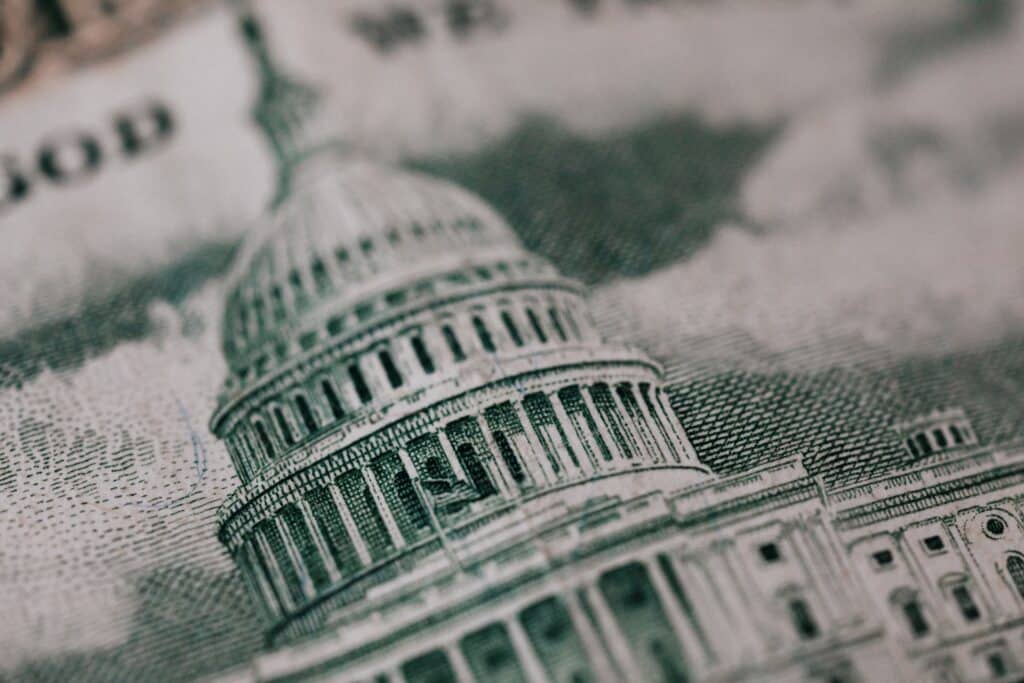
The 118th Congress Must Tighten Spending the Most in These Areas
Members of the 117th Congress allocated trillions of dollars for infrastructure, “inflation reduction,” and COVID-19 “relief,” but the new 118th Congress can and must do better by the taxpayers.
This is according to a document that the Washington, D.C.-based Citizens Against Government Waste (CAGW) published this week.
The report, Critical Waste Issues for the 118th Congress, noted that Republicans control the U.S. House and Democrats control the U.S. Senate.
“The prevailing wisdom is that divided control brings gridlock, but it also brings an opportunity to show which members of Congress are serious about protecting the taxpayers’ money,” according to the CAGW report.
RELATED: Taxpayers’ Personal Information at Risk of IRS Malfeasance, Treasury Department Warns
“The budget deficit was $2.8 trillion in fiscal year (FY) 2021, the second largest in history, and $1.4 trillion in FY 2022, the fourth largest in history. The national debt is $31.5 trillion, and the cost of paying the interest on the debt is greater than anticipated due to rising interest rates. There could not be a more critical time for action to reduce government waste, fraud, abuse, and mismanagement, and rein in the size and scope of the federal government.”
The report lists 13 policy areas that CAGW staff members say require immediate attention and proposes ways to increase government accountability, oversight, and transparency.
Among only a few of the report’s many findings:
• Members of Congress will consider reauthorizing the Farm Bill, but CAGW says elected officials should reform or eliminate several programs for the U.S. Department of Agriculture (USDA), including the sugar, dairy and peanut programs, the Market Access Program (MAP), and the Rural Utilities Services (RUS).
•The U.S. Department of Defense (DOD) cannot pass a financial review “and remains the sole federal agency that has not undergone a clean audit under the Chief Financial Officers Act of 1990.” The acquisition side of defense spending, the CAGW report went on to say, “is also a mess,” including the F-35 Joint Strike Fighter (JSF). The JSF program “has been under continuous development since the contract was awarded in 2001 and has faced innumerable delays and cost overruns.” Total acquisition costs now exceed $428 billion, nearly double the initial estimate of $233 billion. The total costs for the F-35 are estimated to reach $1.727 trillion over the lifetime of the program.”
• By 2027, entitlement spending will make up 63 percent of the federal budget, while discretionary spending will make up 26.7 percent of it. Spending cuts, the CAGW said, “will be insufficient to provide long-term relief from the impact of the continuously growing national debt and the interest payments thereon.” The three largest entitlement programs are Social Security, Medicare, and Medicaid. Social Security cost $1.84 trillion in Fiscal Year (FY) 2020, $1.23 trillion in FY 2021, and $1.206 trillion in FY 2022. Medicare cost $773 billion in FY 2020, $692 billion in FY 2021, and $751 billion in FY 2022. Medicaid, which expanded under Obamacare in 2010, cost $458 billion in FY 2020, $521 billion in FY 2021, and $592 billion in FY 2022.
• The federal government is the most prominent property owner in the United States. The federal government’s real estate portfolio included “about 130,000 domestic civilian buildings as of fiscal year 2019 that cost billions of dollars annually to operate and maintain. In FY 2021, federal agencies owned 7,697 buildings that were vacant (unutilized), and another 2,265 that were partially empty (underutilized).” The federal government, the CAGW report said, “has repeatedly shown that it can neither manage its existing properties nor justify the amount of empty land it owns.”
IN THE NEWS: Arkansas Democrat Sentenced for Taking Bribes
In September, the CAGW published a report that documented at least eight specific reasons why Congress must eliminate earmarks.
In July, the organization reported that members of Congress spent nearly $19 billion in taxpayer dollars on earmarks in Fiscal Year (FY) 2022. That was a 19 percent increase over what they spent in FY 2021.
Send story tips and other story suggestions to [email protected]



